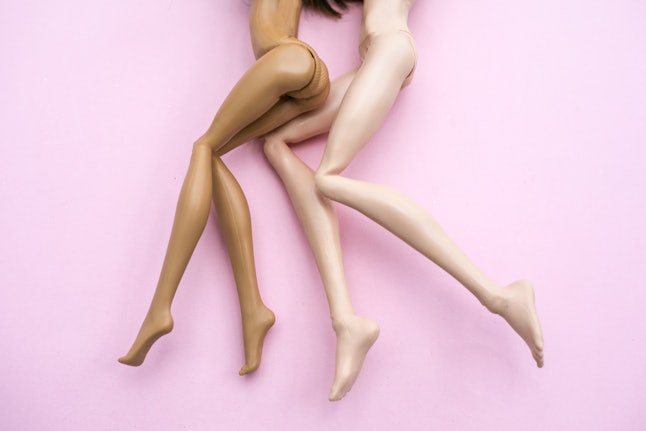Culturally, lube seems to be associated with furiously masturbating teenage boys, menopausal women, and anal sex. Outside of those stereotypes, lube is, at best, mostly secreted away in a drawer your housemates won’t dig through or, at worst, forgotten about entirely. People who unselfconsciously proclaim their love for lube are relegated to the category of thirsty perverts. Well, I may be guilty as charged, but I call bullshit on lube shaming. Here’s why everyone should be using lube.
“If you use a lubricant, it doesn't mean that there is something wrong with you, your partner, or your sex life,” says Lyndsey Harper, a Dallas-based OB/GYN. “There are many benefits of lube that can take sexual activities to a whole new level of pleasure,” she says. So, first of all, let’s let go of the stigma. There’s nothing wrong with using lube, per a medical professional. In fact, as Harper points out, using lube is a next-level approach to pleasure.
“Lubrication in all types of sexual experiences has the ability to decrease pain and increase pleasure,” Harper says. The pain Harper is talking about may not be major pain — in many instances, it’s more likely to be momentary discomfort, a small moment of meh in a sea of orgasms. I think we can all get behind something that decreases pain and increases pleasure, right? Right.
A dry hinge may creak or get stuck, which can happen for any number of reasons. But if lube can get it swinging again, why not use it?
On a basic level, what a lubricant does is decrease friction between two points of contact. Imagine a door hinge. A lubricant is a liquid or gel — available in different bases, including water, silicone, petroleum, and oil — that you apply to your nether regions, allowing that hinge to swing smoothly and effortlessly. A dry hinge may creak or get stuck, which can happen for any number of reasons. But if lube can get it swinging again, why not use it?

While some kinds of friction can be pleasurable, too much friction can tear the delicate skin around your genitals. “The friction from sexual activity without proper lubrication can cause small tears that may increase risk of certain infections, bleeding and prolonged discomfort,” Harper says. Ouch.
The micro tears that are caused by too much friction, such as vaginal cuts and anal fissures, can also lead to infection. These are common, and often preventable, sexual injuries that happen to folx of all genders. “Lubricant can certainly help prevent tears inside or outside the genitals,” says Angela Jones, resident OB/GYN at Astroglide, a popular lube-maker. Jones is quick to remind me that lube does not prevent the transmission of STIs (in fact, oil-based ones can make condoms less effective) and should not be used as an alternative to barrier protection.
While lube makes sex safer on a genital microlevel, using lube does not equate to safe sex. Also, while most lubes on the market suit people fine, you might want to opt for a water-based one if you're prone to yeast infections (penis-havers get those too).
Vaginas are naturally self-lubricating, but Harper says that women may feel a bit dry during various times in the menstrual cycle, when taking certain contraceptives, while pregnant and nursing, after breast cancer treatment, and during and after menopause. So, basically, at almost any moment, a woman may not be getting as wet as she wants and it is not a character flaw on anyone’s part. Also, chill reminder: Not everyone has a vagina, and penises and anuses are not self-lubricating — nor are any other parts of the human body that people frequently use for sex, besides the mouth. So whatever kind of body part you’re working with, lube it up.
All of these are really good technical reasons to use lube, and none of these are why I use lube. I do it because it’s fun, and as far as sexual paraphernalia goes, it is on the cheap end. Even high end weed lube is usually under $50. It’s what Jones calls lube a “sexual enhancer.” “It makes most activities better,” she says. “You don’t need a reason to use it, just give it a try.”
